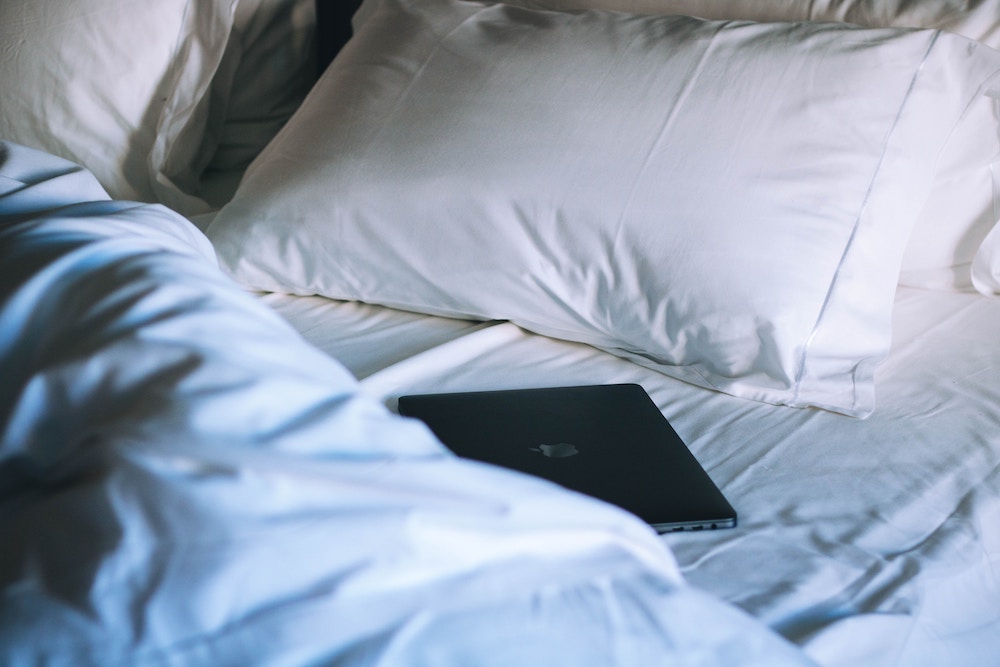Now you know that sleep is crucial for your effective leadership. But how do you improve its quality? Well, it is much easier than it may seem at first. Try the recommendations below and you may expect significant progress in your ZZZs in a week!
#1 Be Consistent
As a leader, you probably know that consistency is key to any systematic changes. Your sleep schedule is no exception. Here are three main steps you should do:
- Find out how much sleep you need. The National Sleep Foundation states that most adults should sleep 7-8 hours per night, but the best way to know what works for you is actually to put some effort and track your sleep. You can use a good old sleep diary and write down the time you go to bed and the time you wake up, or choose the modern way and wear a sleep tracker.
- Determine the optimal sleeping schedule concerning your sleep needs. The aim is to fall asleep and wake up at the same time, which will build up your healthy sleeping pattern.
- Stick to your schedule even on weekends and holidays. This is perhaps the hardest part. When days are stacked, the temptation to stay up late in the company of friends is really immense. But if you do that, chances are you’ll be facing the consequences in the next couple of days. Or weeks. In the long run, it’s not the smartest thing to do.
“If you’ve got a sleepless night, instead of loading yourself with coffee, try to schedule a nap. Just be sure that you’re doing it right: no more than 30 minutes and no less than 3-4 hours before bedtime.”
#2 Create a Sleep-Friendly Space
Another way to score more ZZZs is to make your bedroom a sleep sanctuary. The easiest way to achieve that is to manipulate with temperature, noise, and lights:
- Temperature. Some people can snooze under a pile of blankets during a hot summer night, but most of the global population feel better at lower temperatures. Adjust your thermostat to 60-67F and enjoy a sound sleep. Cooler surroundings boost your melatonin levels and drop the heart rate, thus putting you into a sleepy state.
- Noise. Ideally, there should be no sharp and loud sounds around you while you sleep. To block unwanted noise, you may want to use earplugs or invest in a white noise machine. White noise can absorb other sounds and provides a soothing effect on your brain.
- Lights. Light is another annoying factor. Street lamps, neon signs, and driving cars might become an issue if you live in an urban area. Fortunately, blackouts or blinds will save your sleep. Or, you can use a sleep mask.
If you share a bed with a restless sleeper or with a person who loves to stretch during sleep, be sure that you have enough room for two by picking the right mattress size. This way, you both will be safe from accidentally punching each other and will have enough space for a comfortable sleep.
#3 Watch Your Caffeine Intake
Coffee is an unspoken symbol of extremely busy people.
While caffeine is great at keeping you alert and concentrated, it can easily wreck your sleep at the same time. Studies show that caffeine from an average cup of coffee has a half-life of 3 to 5 hours. Half-life refers to the time your body needs to metabolize only half of the caffeine. The remaining half will stay in your system, thereby affecting your sleep.
If you want to have better shut-eye, try to cut down coffee at least to one morning cup. And remember, that cola and Red Bull contain caffeine too. “To promote alertness during the day, drink adaptogenic herbs. They have a milder overall effect and won’t impact your sleep as much as caffeine does.”
#4 Avoid Gadgets Late at Night
Smartphones and laptops are incredibly useful. They allow you to communicate with people all over the world and be in touch 24/7. Yet, they also have a dark side. Gadgets are one of the causes of insomnia episodes.
First, they produce that notorious blue light, which besides being harmful to the eyes, also suppresses melatonin, thereby keeping you awake. Second, most people don’t turn off notifications during sleep. Constant beeping and blinking can be a significant irritant and mess with your sleep as well.
Thus, before hitting the pillow, spend a second of your time and go into the silent mode or completely turn off your device. You can always return to all the convos and emails in the morning, with a clear head.
#5 Dedicate Some Time to Relaxing
Sometimes it’s just impossible NOT to think about work. But you have to switch off from time to time. Devoting some time to yourself and your hobbies after leaving the office will clear your thoughts and help you wind down so that you could fall asleep easier.
Plus, having a hobby can make you more immune to overworking and burnout.




